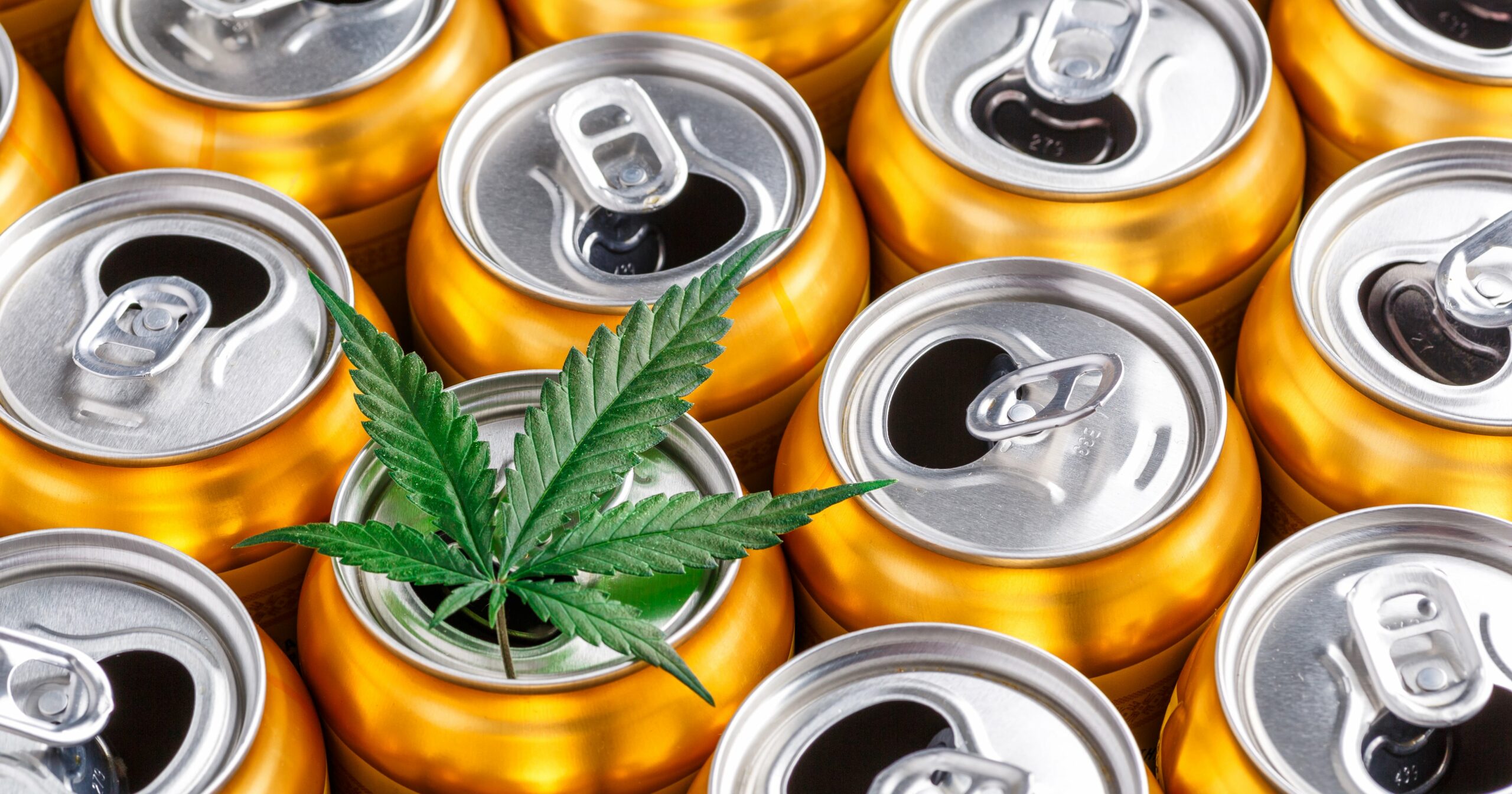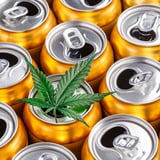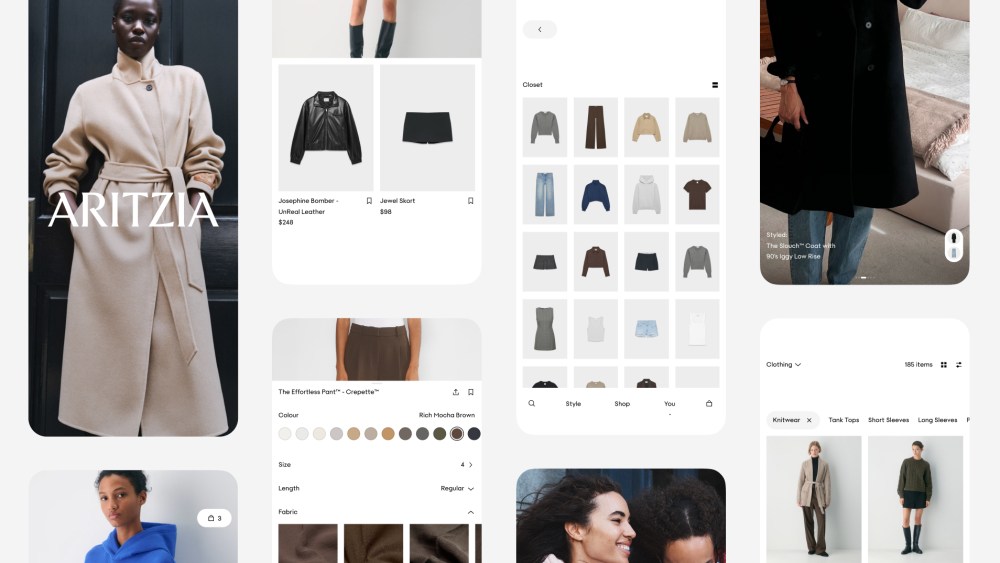Alcohol is *not* having a moment: Dry January is booming. The sober-curious movement continues to pick up steam. And now, for the doozy: the Surgeon General released a warning linking alcohol directly to cancer after the World Health Organization declared any amount of alcohol consumption as unsafe.
If you’re looking to get your buzz elsewhere, there’s an alternative to alcohol popping up seemingly everywhere in the form of tetrahydrocannabinol (THC) drinks. Yes, we’re talking about weed-infused beverages, which have grown exponentially in popularity thanks to a so-called “loophole” in the 2018 Farm Bill declassifying hemp as a Controlled Substance (more on that later).
These drinks, which typically contain anywhere from 1mg of THC to 10mg of THC per serving, promise to deliver a feeling similar to a glass of wine sans the side effects of alcohol. But are they any healthier than drinking your favorite cocktail? Here’s what you need to know about the risks and benefits, according to an MD and three cannabis experts.
Experts Featured in This Article:
Emily Kyle, MS, RDN, is a cannabis educator for Emily Kyle Enterprises, Inc.
Brynna Connor, MD, is the healthcare ambassador at NorthWestPharmacy.com.
Jake Bullock, is the co-founder and CEO of Cann.
Hilary Bricken, is a partner and cannabis business attorney at Husch Blackwell.
What’s in THC Beverages, Exactly?
THC drinks typically refer to beverages that contain the cannabinoid Delta-9. If you’ve ever gotten “high” before by smoking or ingesting marijuana, it’s likely because of Delta-9 and the psychoactive effects it can have in high doses. Many drinks on the market, like popular brands Cann and Wynk, also include cannabidiol (CBD), which does not make you high and can help with things like anxiety.
“CBD should help sort of soften the effects of the THC,” says Cann co-founder and CEO Jake Bullock, which is why Cann includes CBD alongside THC in their drinks. “It’s another mechanism we have incorporated to make these products more mild, approachable, and social,” he tells PS. Some drinks, like Cann, have a 2:1 ratio of CBD to THC, while others, like Wynk, possess a 1:1 ratio of CBD to THC. Other beverages contain only THC, which will produce different potential effects for the end user.
Are THC Drinks Better For You Than Alcohol?
“It’s all about harm reduction,” says Emily Kyle, MS, RDN. “When we’re talking about alcohol consumption, we know that there are so many unwanted and negative side effects associated with it.” Adverse side effects of drinking alcohol are well-documented and include poor sleep, gut, liver and heart issues, and an increase in cancer risk. THC doesn’t appear to affect the body the same way, but Kyle notes that there have been no formal studies on the long-term effects of THC use.
“While THC does not pose the same liver toxicity risk as alcohol, it can negatively affect cognition, motor function, and judgment,” says Dr. Brynna Connor, MD and Healthcare Ambassador at NorthWestPharmacy.com. She notes that both THC and alcohol can have negative effects on mental health and cognitive function – especially with excessive or frequent use.
So, while it’s not possible to definitely say that one is “better” than the other, we do know that THC affects the body differently. The short-term side effects of THC consumption appear to be less toxic.
Can THC Drinks Help You Lose Weight?
THC drinks typically contain fewer calories than an alcoholic beverage, which Kyle says can be a plus for those aiming to be more calories conscious. While a glass of wine can contain up to 158 calories, one Cann has about 30 calories, while one Wynk has zero calories.
What Are The Risks of THC-Infused Drinks?
Smoking, ingesting, or drinking too much THC can lead to feelings of paranoia, heightened anxiety, and panic. It can take anywhere from 15 minutes to an hour to feel the full effects of a THC-infused drink, which means some people drink more because they aren’t feeling the effects yet, which leads to consuming too much and feeling negative.
High doses of THC can negatively impact memory, concentration, and reaction times, which can subsequently lead to difficulty performing tasks that require focus and coordination, such as driving, says Dr. Connor. You should always call a car or have a designated driver if you’ll be drinking these beverages – just like you would if you were drinking alcohol.
And if you mix alcohol and THC, which is not advised, you might also run the risk of what Kyle calls “‘cross-fading,” where you may get dizzy, feel sick, or even throw up.
How Much THC Is Safe To Drink at a Time?
The question of quantity is one of the most prevalent inquiries that Kyle and Bullock receive, and unfortunately, there’s no one-size-fits-all answer. “We tell folks it’s not that dissimilar to alcohol and what you’ve learned about alcohol,” says Bullock. The same parts of the equation that influence how alcohol affects you – like how hydrated you are, how much you weigh, and how much you’ve eaten – apply to consuming THC beverages.
“Start slow and see how you feel after an hour,” Bullock says. “If you like the experience you had, have another one,” he adds, also noting that just like alcohol you can make the effect more intense by drinking more quickly (or vice versa).
“The most important rule in cannabis that we always reiterate is you start low and go slow,” echoes Kyle. “It’s never a bad thing to start with less because you can always take more, but you can’t take less.” Most THC beverages range from 1mg to 10mg of THC per serving, but how much CBD is in the beverage will also influence how it affects you. Kyle likens having CBD with THC to having a mixed drink, while having just THC would be more similar to taking a shot.
Before you imbibe, check the label to make sure you’re starting with a smaller dose. If you’re new to cannabis, you’ll want to start on the lower side to see how you feel. If you’re more experienced, you may decide to start a bit higher. “It’s so important for people to be patient and understand that it’s OK to not quite get [the dosing] right the first or second time,” says Kyle. “We don’t all get drinking right the first or second time either, but be willing to experiment and know that it does take some time to find your sweet spot.”
Wait, Are THC Drinks Even Legal?
At a federal level, anything under 0.3 percent THC by weight is considered industrial hemp and legal, but each state has its own governing rules. “The [2018] Farm Bill defined industrial hemp as anything from the cannabis plant containing less than 0.3 percent Delta-9 THC,” says Hilary Bricken, partner and cannabis business attorney at Husch Blackwell. Some states don’t allow products to be sold in stores but permit them to be shipped to homes, other states regulate what can be produced and sold in stores, and some states don’t allow these products at all.
In Minnesota, as an example, “you can go and get THC beverages derived from hemp with intoxicating effects at your local Total Wine and more,” says Bricken. In California, you’ll only be able to get intoxicating hemp products from a dispensary. Check your state’s regulations around THC drinks if you’re unsure.
Even though industrial hemp is legal at the federal level, there is no way to distinguish hemp from marijuana on a drug test. Remember that if you require or may require drug testing for school, employment, or other purposes.
THC Drinks: The Bottom Line
THC beverages can be a great alternative for people looking to reduce or eliminate their alcohol consumption. While they appear to be less toxic with less severe negative health consequences, as compared to alcohol, it’s important to consider some of the risks associated with drinking these beverages.
“If you can feel happier and healthier with cannabis, drink less alcohol, or just feel more relaxed in social situations,” says Kyle, “it’s a great option for people to explore.”
Elliott Harrell is a Raleigh, NC-based freelance writer with two little girls who runs a sales team by day and writes about things she’s passionate about, like women’s health, parenting, and food, at night. In addition to PS, her work can be found in The Everymom, Motherly, Business Insider, Eater, and more.



